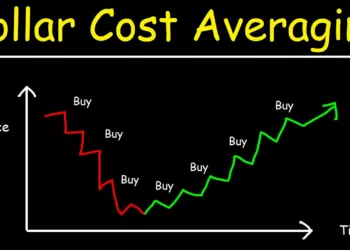Money. That powerful six-letter word that strikes both fascination and fear into the hearts of so many. As a professional trader and investor who has navigated the ups and downs of the financial markets for years, I’ve seen firsthand how people’s relationship with money can make or break their long-term success and well-being. In this post, we’ll dive deep into the roots of money fears, how they manifest, and most importantly – the steps you can take starting today to transform your mindset around money for good.
The Roots of Money Fears
What causes some people to develop a fear of money in the first place? There are a few key factors:
- Negative childhood experiences related to money. If someone grew up in an environment where there was a scarcity of money, frequent arguing about finances, or other stressors, it can lead to negative associations and anxiety around money that persist into adulthood.
- Lack of financial education. Many people simply weren’t taught the fundamentals of personal finance by their parents or in school. This lack of knowledge and confidence in dealing with money can manifest as fear and avoidance.
- Cultural and societal taboos about money. In some cultures and social circles, talking openly about money is considered uncouth or gauche. This stigma can make people uncomfortable engaging with their finances.
- Underlying psychological factors. For some, money fears are a manifestation of deeper issues such as low self-worth, perfectionism, or fear of failure. Working through these root causes with a therapist or counselor can be an important part of overcoming money anxiety.
Consider this striking quote from personal finance expert Suze Orman:
“A big part of financial freedom is having your heart and mind free from worry about the what-ifs of life.”
By understanding the roots of money fears, we can start to free ourselves from their grip.
How Money Fears Manifest
So what does a fear of money actually look like in practice, especially for young people? Here are some common ways it manifests:
- Avoidance of dealing with finances, such as not checking bank account balances
- Anxiety and stress when bills arrive or financial decisions need to be made
- Overspending as a coping mechanism to avoid feelings of deprivation
- Underspending to an unhealthy degree out of fear of not having enough
- Relying excessively on others like parents or a partner to manage money
- Trouble charging appropriately for one’s work and undervaluing one’s worth
- An “all-or-nothing” mentality that swings between deprivation and splurging
- Feeling undeserving of having or spending money on one’s wants and needs
If any of those hit home for you, know that you’re not alone. The key is recognizing how a strained relationship with money may be holding you back from your full potential. Now, let’s look at how to start making a shift.
The First Step to Overcoming Money Fears
In my experience, the first and most important step to transforming your relationship with money is simply to start engaging with it in a spirit of curiosity and self-compassion. What do I mean by that? Instead of avoiding your finances or beating yourself up over past missteps, choose to become an investigator of your own money story.
Start by tracking your income, expenses, and overall net worth (assets minus debts). You can use a simple spreadsheet or any number of helpful apps. The key is to begin getting a clear and current snapshot of where you stand. This process can feel vulnerable, but remember, you’re doing it with a sense of neutral observation, not harsh judgment.
Some helpful questions to reflect on:
- What are my biggest sources of income and expenses each month?
- Which spending patterns align with my goals and values, and which don’t?
- How do I tend to think and feel when dealing with financial matters?
- What past experiences may have shaped my current views of money?
Just by engaging in this process of inquiry, you’re already starting to shift your relationship with money from one of fear and avoidance to one of empowerment and self-understanding. That’s huge! Celebrate this first step and the courage it took. Now, let’s look at how to build on this momentum.
Additional Steps to Financial Empowerment
Overcoming deep-seated money fears doesn’t happen overnight, but with continued practice, it’s absolutely possible to transform your relationship with money for the better. Here are some additional steps I recommend:
- Educate yourself about personal finance. As you start tracking your money, you’ll likely encounter terms and concepts you’re unfamiliar with. When that happens, take the initiative to look them up and learn more. Commit to learning a little bit about money management each day or week. Over time, your knowledge and confidence will steadily increase. Some great resources include:
- NerdWallet for articles, calculators, and product comparisons
- The book I Will Teach You to Be Rich by Ramit Sethi for a fresh take on personal finance basics
- Money Girl podcast for short, actionable money tips
- Set meaningful financial goals. As you gain more clarity on your current financial situation, start setting some specific and motivating goals for the future. What do you want your money to allow you to do? Travel? Start a business? Give to causes you care about? Having a compelling “why” can help override fear-based inertia.
- Take small action steps consistently. With your goals in mind, break them down into the smallest possible action steps, and commit to following through, even when your money anxiety gets triggered. The more you “lean in” to difficult money tasks, the more your fear will diminish over time.
- Practice money gratitude. In addition to engaging with your finances pragmatically, be sure to also practice appreciating what money allows you to experience. Savor and feel true gratitude for every meal, the roof over your head, the clothes on your back. This isn’t about comparing yourself to others, but rather noticing the gifts that money – even a modest amount of it – provides in your life every single day.
- Surround yourself with financial allies. As you work to improve your relationship with money, it helps immensely to surround yourself with others on a similar path. This could mean joining an online community focused on financial wellness, working with a money coach or financial planner, or simply reading blogs by relatable financial experts. The more you immerse yourself in a positive money mindset, the easier it becomes to internalize it.
- Address root causes with professional support. Finally, if you suspect your money anxiety is tied to deeper emotional blocks or past traumas, consider working with a financial therapist or counselor who specializes in money issues. Having a compassionate guide can help you unpack and rewrite your underlying money stories.
Let these words from financial therapist Bari Tessler Linden inspire you on this journey:
“Money is not just a practical matter, but an emotional one. Our relationship with money is a mirror of our relationship with ourselves and the world around us.”
You Have the Power to Transform Your Financial Life
To all the young people out there who feel held back by money fears, know this: You have the power to transform your financial reality, starting today. By courageously choosing to understand your current money story, then taking consistent steps to educate yourself and practice new habits, you can absolutely move from fear to empowerment around money.
As someone who has walked this path myself and come out the other side, here is my most heartfelt advice to you: Be patient and compassionate with yourself in this process. Your money story took a lifetime to develop; it will take some time to rewrite it. Appreciate every tiny win and moment of progress along the way. Little by little, those shifts will add up to a complete transformation of how you think and feel about money.
Remember, money is simply a tool. With practice, you’ll learn to relate to it in a grounded, neutral way – to use it to consciously craft the life of your dreams, not be used by it. As you start to see money as an ally on your side, your world will open up in ways you never could have imagined. Here’s to your new chapter of financial freedom and empowerment!
I hope this blog post is helpful in addressing the fear of money in an in-depth but empowering way. Let me know if you would like me to modify anything!
Note: This blog post contains affiliate links. If you choose to make a purchase through these links, I may receive a small commission at no extra cost to you. This helps support the blog and allows me to continue creating content like this. Thank you for your support!
Note: This blog post is written by a professional trader and investor based on personal experiences and opinions. It is not intended as financial advice. Always conduct your own research and consult a financial advisor before making any financial decisions.
















































